The Private Files Of J. Edgar Hoover

Brief Synopsis
Cast & Crew
Larry Cohen
Broderick Crawford
Jose Ferrer
Michael Parks
Ronee Blakley
Rip Torn
Film Details
Technical Specs
Synopsis
The life of former FBI director J. Edgar Hoover is dramatized. Some of the notable successes of his career with the bureau are shown, including the shooting of notorious gangster John Dillinger in Chicago and Hoover's first arrest. Hoover's homosexuality, his decadent private life, and his propensity for using blackmail to gain support are also explored.
Director
Larry Cohen
Cast
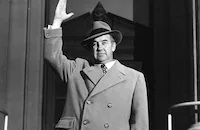
Broderick Crawford

Jose Ferrer

Michael Parks
Ronee Blakley

Rip Torn
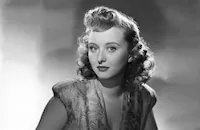
Celeste Holm
Michael Sacks

Dan Dailey
Raymond St. Jacques
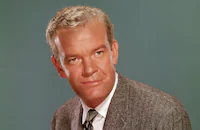
Andrew Duggan

John Marley
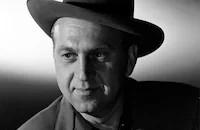
Howard Da Silva

June Havoc
James Wainwright
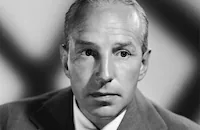
Lloyd Nolan
Ellen Barber

Lloyd Gough

Brad Dexter
Jennifer Nicole Lee
George Plimpton
Jack Cassidy
William Jordan
Henderson Forsythe
George Wallace
Fred J Scollay

William Wellman Jr.
Art Lund
Mary Alice Moore
Jim Antonio
Gregory Abels
Dan Resin
James Dixon
Pennie Dupont
Alvin Miles
John Bay
Brooks Morton
Richard M Dixon
James Dukas
Ron Faber
Ed Masy
Hanns Manship
Dana Rowe
Colin Bremmen
Jack Drummond
Joe Norton
Ken Harvey
Paul Thomas
Sam Crew
Margolyn Curtis
Tanya Roberts
Larry Pines
John Stefano
Wyman Kane
Gordon Zimmerman
Marty Lee
Reno Garrel
Frank Kohnbach
Marshall Gordon
Joe Mayo
Frank Arrowsmith
Gwynn Gillis
Bruce Weitz
Crew
Barry Abrams
Josephine Cianella
Bob Cohen
Larry Cohen
Larry Cohen
Denver Collins
John M Crewdson
Cathy Davis
Reid Freeman
Lewis Friedman
Robert Gheraldini
Paul Glickman
Rifka Gold
Fenton Hamilton
Maris Janssen
Jane Landis
Chris Lebenzon
Chris Lebenzon
Carolyn Loewenstein
Artie Mandelberg
Artie Mandelberg
Steve Neill
Larry Parker
John Ramsen
Miklos Rozsa
Peter Sabiston
Peter Sabiston
Ken Scrivener
Doyle Tolliver
Mark Zavad
Film Details
Technical Specs
Articles
George Plimpton, 1927-2003

George Plimpton, 1927-2003
The Private Files of J. Edgar Hoover
For the lead role of J. Edgar Hoover, Cohen considered Robert Duvall and Charles Durning. George C. Scott contacted Cohen with interest in the part but by that point Cohen had already cast Broderick Crawford. In an interview, Cohen said, "Broderick Crawford was letter perfect, never missed a call and was always on time." This was a plum role for an actor who might otherwise have been considered past his prime. After his success with Born Yesterday (1950) and the TV show Highway Patrol, which ended in 1959, a leading part in a big production was an opportunity not to be missed. James Wainwright was cast as young Hoover, a television actor with only a handful of movie roles to his name. Both Crawford and Wainwright bore close resemblances not only to Hoover but to each other.
Cohen and his team took great pains to build a fine ensemble cast that would play all the key figures in Hoover's life. These include: Robert F. Kennedy (Michael Parks), John F. Kennedy (William Jordan), Martin Luther King Jr. (Raymond St. Jacques), President Franklin D. Roosevelt (Howard Da Silva), President Lyndon B. Johnson (Andrew Duggan), Walter Winchell (Lloyd Gough), Senator Joseph McCarthy (George Wallace), Hoover's rival Melvin Purvis (Michael Sacks) and Hoover's mom (June Havoc). Fictional characters included spurned love interests Florence Hollister, a wealthy widow played by Celeste Holm and Carrie DeWitt, a prostitute played by Ronee Blakley. Jose Ferrer plays Lionel McCoy, Hoover's lifelong friend, and Rip Torn narrates as Dwight Webb Jr. In his final film role, Dan Dailey plays Clyde Tolson, FBI Deputy Director and longtime partner of Hoover. It's also the final film for Jack Cassidy who died shortly before the film was released.
The Private Files of J. Edgar Hoover was written, produced and directed by Cohen who worked his way up from writing teleplays and TV scripts to directing low-budget horror films and bigger productions. This movie combines Cohen's classic pulp style with a documentary style of filmmaking. The original plan to make a three-hour movie at $3 million was changed to a more reasonable 111 minutes and $1 million. Cohen hired composer Miklos Rozsa who wrote a dramatic score performed by the London Philharmonic Symphony.
For Cohen, authenticity was key. He hired John M. Crewdson, an FBI expert and writer as his technical advisor and even included figures from Hoover's life including his barber and the waiter at his favorite restaurant. Cohen wanted to film in Hoover's world but that was easier said than done. According to an article in the Los Angeles Times, Cohen wanted to recreate the RFK assassination at the Ambassador Hotel in Los Angeles but was denied by hotel management. Getting permission from the federal government to film at the FBI headquarters, the Department of Justice building and the FBI training Academy was no easy task. This is where the casting of Dan Dailey came in handy. When First Lady Betty Ford, a big fan of Dailey's, heard he was in town, she invited him and Broderick Crawford for lunch at the White House. Seizing on this opportunity, Cohen called the Department of Justice asking about access to the locations he sought and name dropping this recent connection with the First Lady. In an later interview, Cohen remembered, "they put me on hold and then came back to say, 'When do you want to come?' We filmed everywhere after that!" When not filming historical reenactments on the MGM backlot, shortly before it was demolished, Cohen shot at The Mayflower Hotel and The Sheraton Hotel, two locations Hoover frequented and Hoover's home. The film wrapped up in just four weeks and on budget.
MGM, 20th Century-Fox and Warner Bros., all liked the film but turned it down in fear of the FBI's potential wrath, so it was American International Pictures (AIP) that came to the rescue and picked up Cohen's film for distribution. They made the big mistake of screening it at the Kennedy Center in Washington D.C. to an audience of government officials who didn't care for how the film painted the U.S. government in an unflattering light. The film was nothing if not politicized depicting politicians as dishonest and hypocritical. Cohen said, "there were no good guys, all bad guys." At the start of the film the following warning appears: "This motion picture was filmed on actual locations at the F.B.I. but without the approval or censorship of the Bureau."
The Private Files of J. Edgar Hoover had a limited run in five cities. It did not perform well and quickly moved to TV. It got mixed reviews with Variety claiming the film "may be the motion picture industry's first historical horror story." According to a 2017 interview with Larry Cohen, The Washington Post tried to destroy the movie. He said, "at the end of the movie it stated Woodward and Bernstein got all their information from the FBI. And it turned out years later that Deep Throat was Mark Felt, the acting director of the FBI at the time." Cohen was clearly ahead of his time. The film was deemed profitable due to some clever maneuvering on the part of AIP who sold the film to a tax shelter group. Cohen got a $150,000 bonus right off the bat and the film netted $400,000 in profits despite its unsuccessful theatrical run. Over the years, the film has enjoyed repertory and festival screenings in the US and abroad and is considered one of Cohen's underrated achievements.
By Raquel Stecher
The Private Files of J. Edgar Hoover
Quotes
Trivia
Miscellaneous Notes
Released in United States 1998
Released in United States March 1979
Released in United States Winter January 1, 1977
Shown at Avignon/New York Film Festival (Cohen Retrospective) in New York City (French Institute) April 24 - May 3, 1998.
Released in United States 1998 (Shown at Avignon/New York Film Festival (Cohen Retrospective) in New York City (French Institute) April 24 - May 3, 1998.)
Released in United States Winter January 1, 1977
Released in United States March 1979 (Shown at FILMEX: Los Angeles International Film Exposition (Contemporary Cinema) March 14-30, 1979.)













